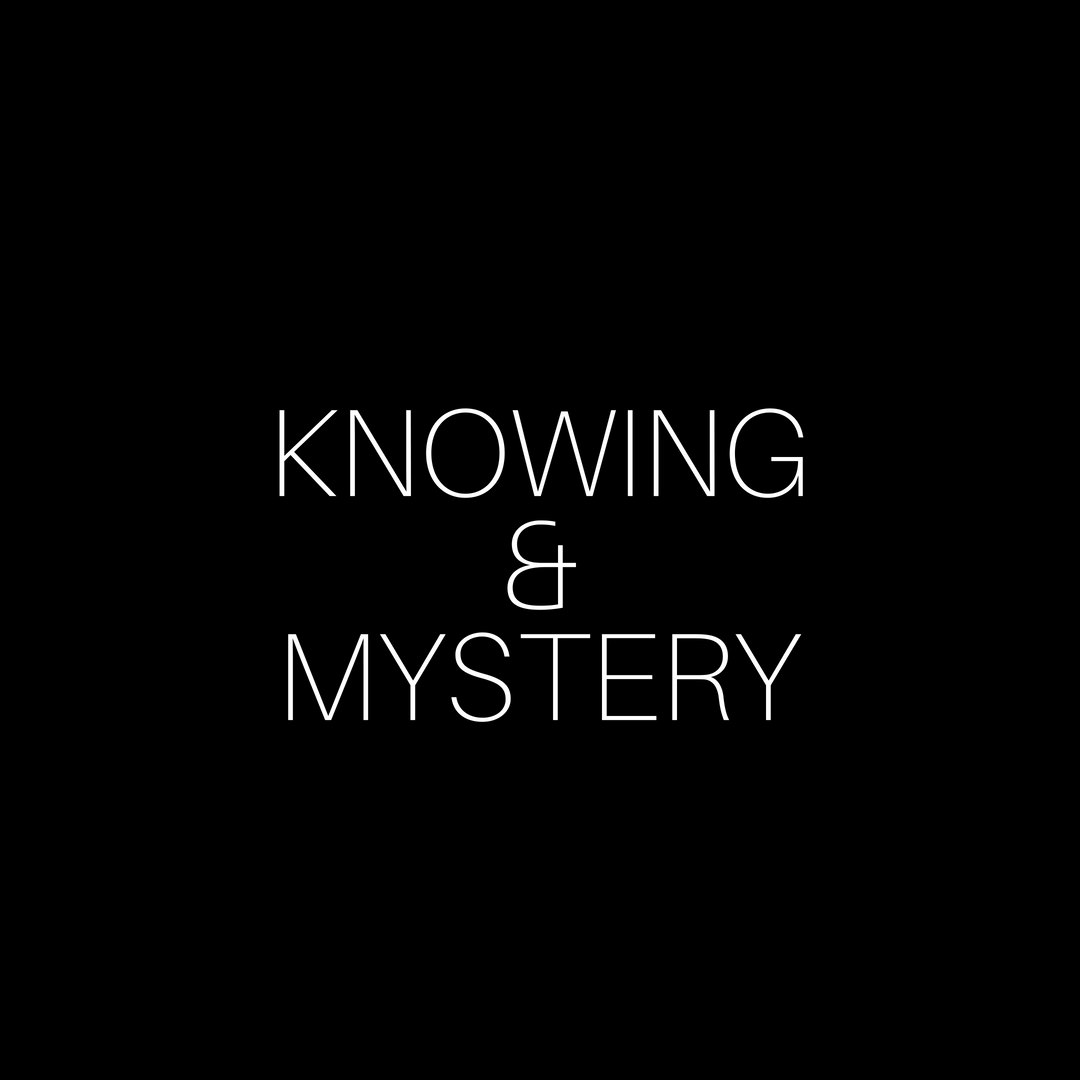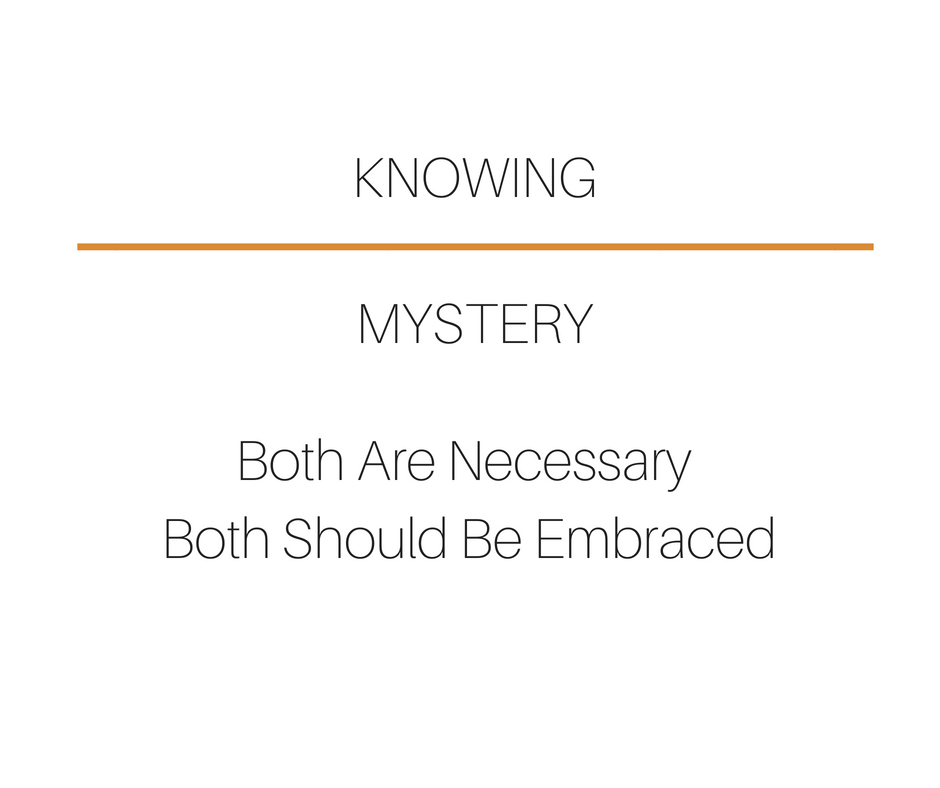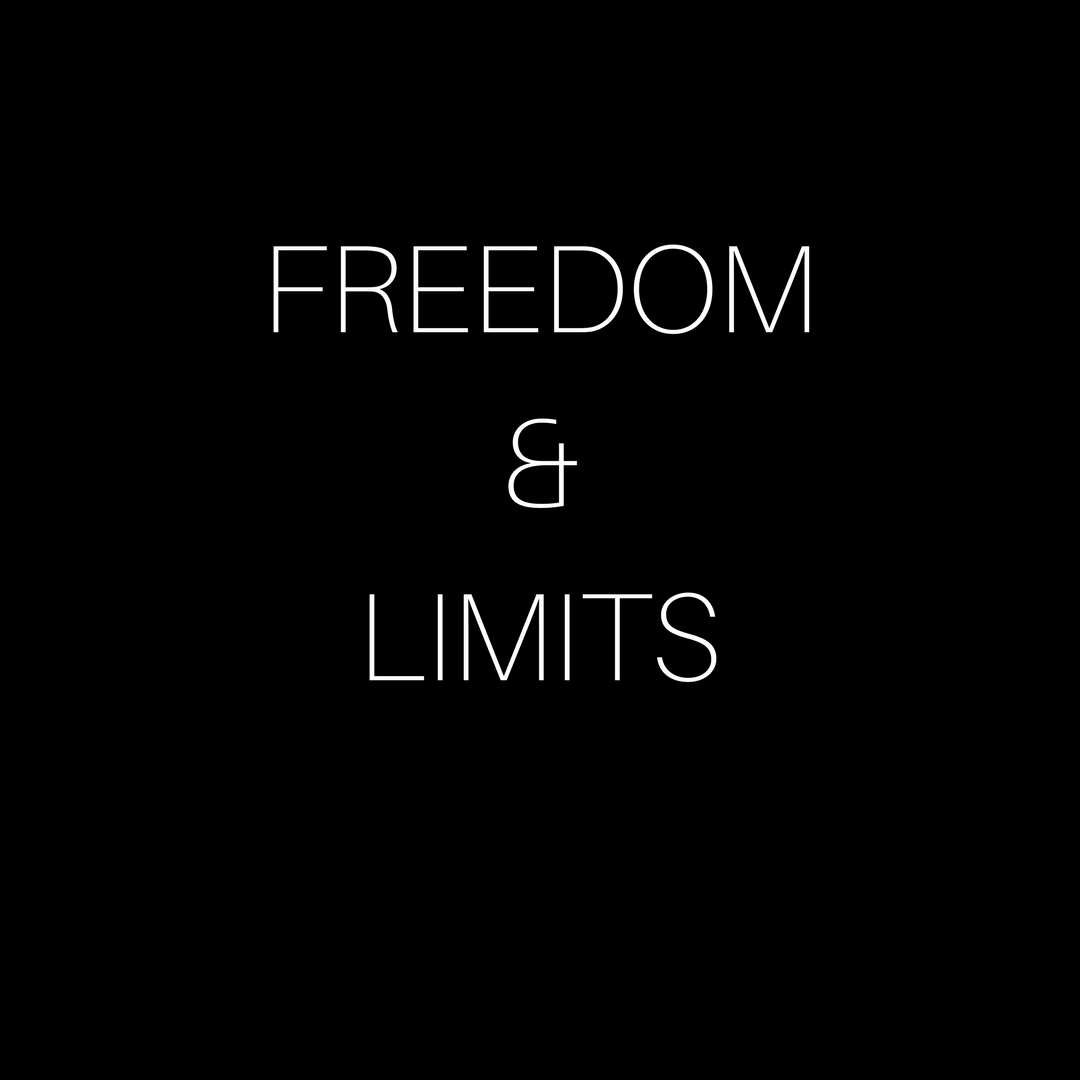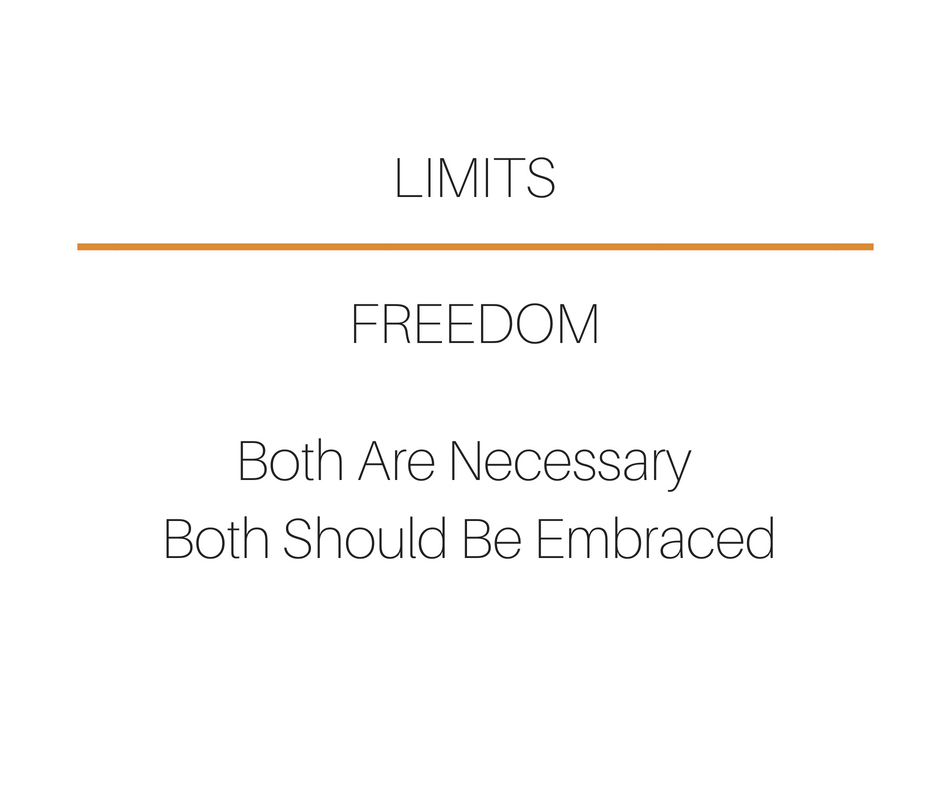The need to know runs deep and strong. For the most part, we believe that if we know what is happening we can do something about it. When we know we feel a sense of control. And, having a sense of control is vital to our well-being. But, most of us also understand (at a deep and often avoided level) that we don't really have control over much of anything in our lives. Just watch the news on any given evening. You will hear about events...usually tragic events...that have turned lives upside down in an instant. The Problem We are given daily doses of "truth" that, once digested, give us the impression of knowing. This knowing comforts us and allows us to feel like we can take charge of our lives. All of this is very important and very useful. Without it we wouldn't even know how to boil an egg. Information is good! Information that is true is even better! We act as if there is no end to knowing...that we could actually get to a place where we know all that can be known. This is particularly true in long term relationships. Their length itself seduces us into thinking we know all there is to know about our partners. Once we've arrived at this place of knowing we've concluded our quest and the relationship has essentially lost its appeal. The problem resides in an over-emphasis on knowing. This is accompanied by the discomfort most of us feel with the notion of mystery. We could say that the popularity of mystery novels demonstrates a real interest and attraction to mystery. But, that's not really the case. The popularity of mystery novels resides in the fact that the novel points out a mystery but concludes with the mystery being solved. A mystery novel that leaves things mysterious wouldn't have a lot of appeal. The Dark Truth is that for a long term relationship to maintain its vitality, a portion of it has to remain mysterious. In order for a couple to feel actively drawn to each other there needs to be an experience of interest and curiosity both of which are fueled by the presence of mystery.
2 Comments
THE PROBLEM
When a person who's afraid of freedom is sufficiently stressed he/she will view the person embracing freedom as dangerous. Freedom becomes toxic and threatens to destroy stability. For example: "If you don't reign in your spending and live by our budget we will go bankrupt!" Or, " If you don't discipline the kids more consistently they will turn into juvenile delinquents." Or, "If you don't stop talking to your 'friend' at work, I can't stay in this marriage." And... When a person who's afraid of limits is sufficiently stressed he/she will view the person embracing limits as dangerous. Limits become toxic and threaten to destroy a sense of freedom. For example: "If I have to check with you or the budget every time I need to buy something I might as well be in jail with you as the warden." Or, "They are kids! Let them have some fun. You are always on them. That's why they don't like you." Or, "I have a right to decide who I want to be friends with. You need to back off and trust me!" YOU ARE PROBABLY AFRAID OF FREEDOM IF...
YOU ARE PROBABLY AFRAID OF LIMITS IF...
Judging from social media posts, magazine covers and other forms of consumer information, most people are looking for a relationship life that is smooth, fulfilling, growing, interesting, passionate and exciting. This, despite the common disclaimers that go something like this…
“I know relationships are hard and they require work.” Or, “No one is perfect, certainly not me. So, I know there will be ups and downs.” No acknowledgement of difficulty nor awareness of imperfection seems to stop us from looking for the quick cure that will, within a few designated steps, resolve all the really difficult issues we confront. Maybe it’s always been this way. Or, maybe we are simply living out an instant culture brought to us by quick internet searches and same-day delivery for online purchases. It doesn’t really matter. What matters is acknowledging the difficulty of successful relationships, letting that awareness soak in thoroughly and diving deeply into the work of making things go well. By not letting the awareness of difficulty soak in thoroughly we fool ourselves into thinking things will be fine. Most of us are unwilling to embrace the depth of the relationship difficulties we face. We prefer to avoid them and hope for the best. The net result of avoidance is that we feel some temporary relief. But, in all likelihood the difficulties take root and become even more entrenched. It takes a lot of acceptance, patience and courage to experience the full extent of what happens in an intimate relationship. Sometimes it’s even difficult to embrace how good things are. So, it’s not just the hard stuff that we resist. Being completely open to what a relationship brings…both good and bad…is the definition of intimacy. Intimacy often feels great but not always. Though it doesn’t always feel good, it’s always productive. Going forward, I’ll take a look at some of The Dark Truths of Successful Marriage. These are the things we’re often reluctant to acknowledge and even more reluctant to embrace. |
AuthorshipThese posts are written by Jake Thiessen, PhD, co-founder of Couples at Crossroads. We hope you find them interesting, helpful and maybe provocative. Please feel free to comment on them. Archives
September 2018
Categories |






 RSS Feed
RSS Feed